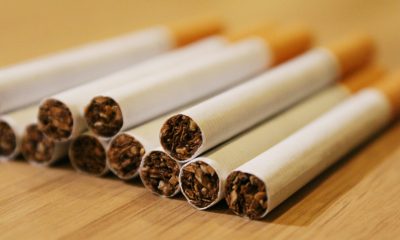Matteo Messina Denaro was on Monday (16 January) arrested by armed police in Sicily at a private hospital. The man, who has been on the loose since 1993, was being treated for cancer.
Italy
After 30 years, Italy arrests mafia boss Messina Denaro at Sicilian hospital
SHARE:

Messina Denaro was nicknamed "Diabolik", "U Siccu" ("The Skinny One") for his involvement in the 1992 murders by anti-mafia prosecutors Giovanni Falcone, and Paolo Borsellino. These crimes shocked the nation and spurred a crackdown against Cosa Nostra.
Messina Denaro (60) was taken from Palermo’s "La Maddalena” hospital by two uniformed police carabinieri and then bundled into a waiting minivan. He was wearing a brown fur-lined jacket and glasses, and a brown and white woolly cap.
According to judicial sources, he was being treated for cancer. He had an operation last January and then a series of appointments under a false identity.
"We had a clue and we followed it through until today's arrest," Palermo prosecutor Maurizio di Lucia said.
Magistrate Paolo Guido was also responsible for investigations into Messina denaro. He stated that dismantling his network protectors was the key to achieving the result after years of hard work.
On the spot, a second man was taken into custody for driving Messina Denaro from the hospital. He was suspected of aiding a fugitive.
Social media images showed locals applauding as they shake hands with police officers in balaclavas while the minivan carrying Messina Denaro was taken from the suburban hospital and driven to a secret location.
Giorgia, the Italian Prime Minister, traveled to Sicily to felicitate police chiefs following the arrest.
She stated that although we haven't won the war or defeated the mafia, this was a crucial battle and a major victory for organised crime.
Maria Falcone (sister of the murdered judge) echoed this sentiment.
She said that "it proves mafiosi are, despite delusions about their omnipotence and ultimate doom to defeat in conflict with the democratic government."
FAST CARS, FLASHY COLOTHES
Messina Denaro is from Castelvetrano, in the western Sicily. She is the daughter of a mafia boss.
Last September, police said that he was still capable of issuing commands regarding the mafia's activities in the region around Trapani. This was his stronghold.
Before hiding out, he was well-known for his love for expensive cars and his preference for finely tailored suits and Rolex watches.
For his involvement in the bomb attacks on Milan, Florence and Rome that killed 10 people in 1993, he faces a life sentence. Prosecutors also accuse him of being solely and jointly responsible for many other murders during the 1990s.
Prosecutors claim that he was involved in the 1993 kidnapping and murder of Giuseppe Di Matteo (12 years old) to prevent his father from giving evidence against him. Two years later, the boy was taken into captivity and then his body was dissolved in acid.
This arrest is almost 30 years after Salvatore "Toto", the most powerful boss in the Sicilian Mafia, was arrested by police. He was eventually sentenced to death in prison in 2017 for not violating his code of silence.
Gian Carlo Caselli, who was Palermo's prosecutor at the time Riina was arrested, said, "It is an exceptional event, of historical significance."
Even with all the optimism, Italy faces challenges in containing organized crime groups whose reach extends far and wide.
Experts believe that Cosa Nostra was taken over by the ‘Ndrangheta (Calabrian mafia) as the most powerful organised crime organization in Italy.
Federico Varese from Oxford University, professor of Criminology, said that there is a feeling that the Sicilian mafia is less powerful than it was in the past.
Share this article:
-

 NATO4 days ago
NATO4 days agoEuropean parliamentarians write to President Biden
-

 Kazakhstan4 days ago
Kazakhstan4 days agoLord Cameron’s visit demonstrates importance of Central Asia
-

 Tobacco4 days ago
Tobacco4 days agoTobaccogate Continues: The intriguing case of Dentsu Tracking
-

 Tobacco2 days ago
Tobacco2 days agoThe switch from cigarettes: how the battle to go smoke-free is being won


















